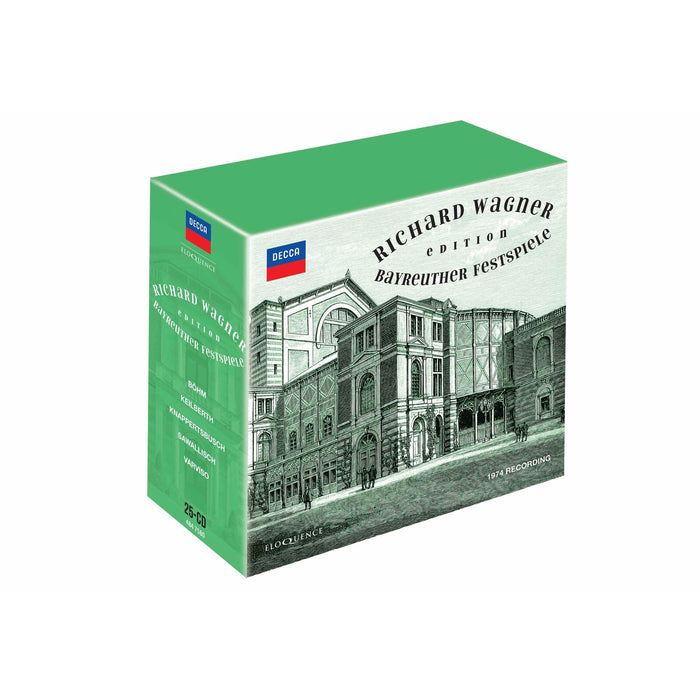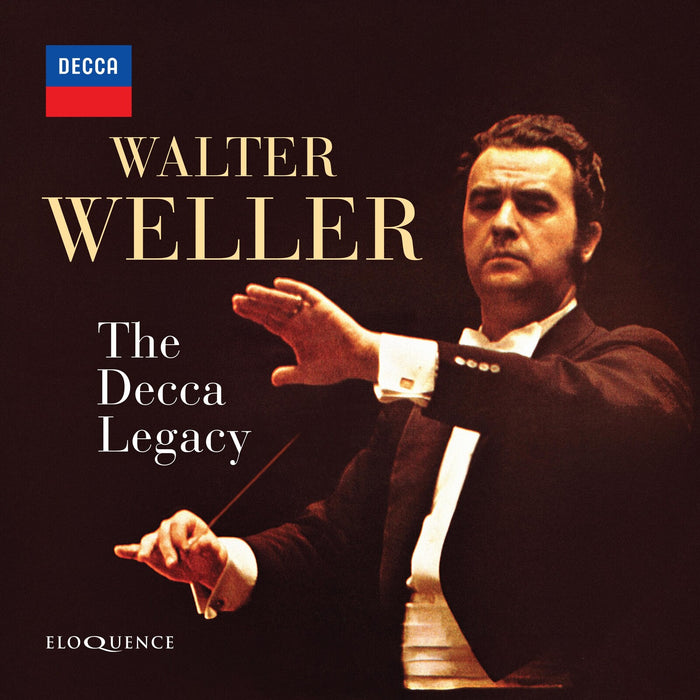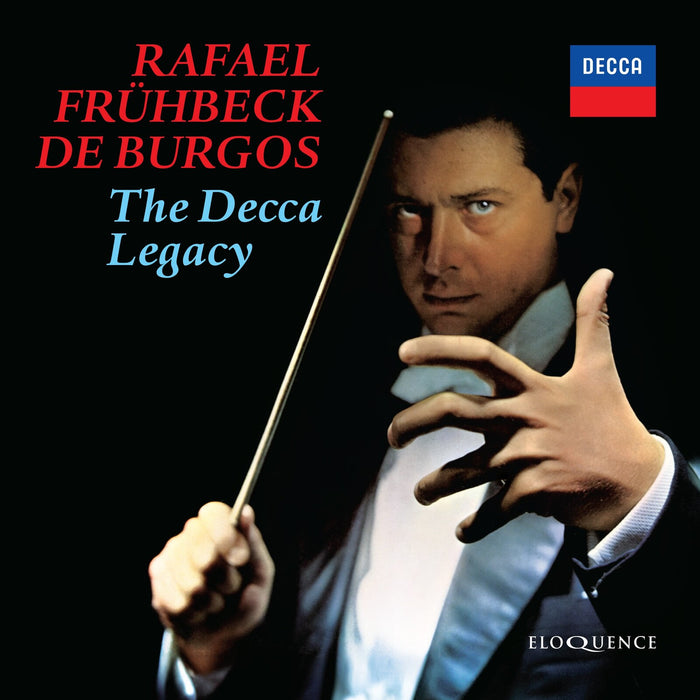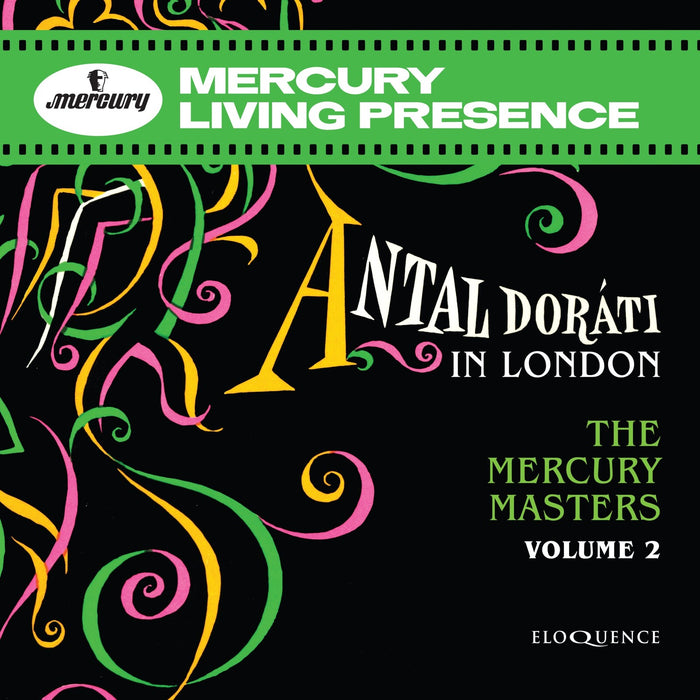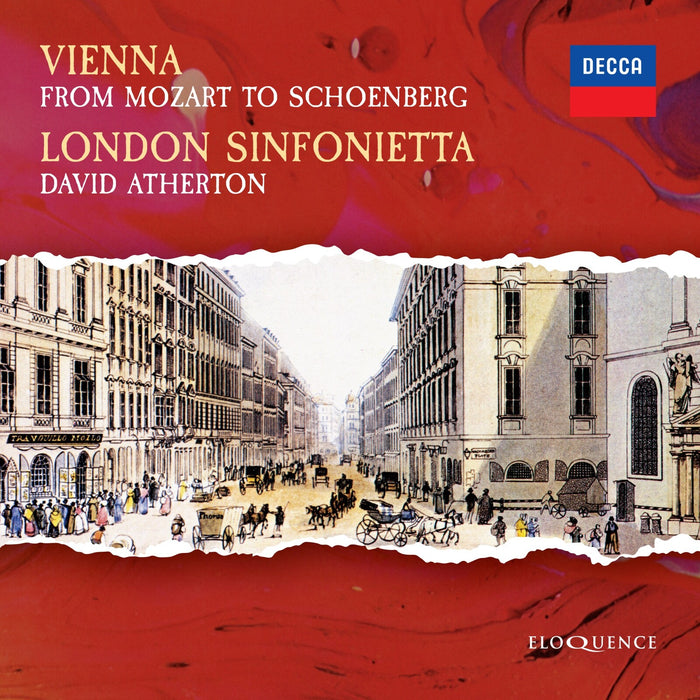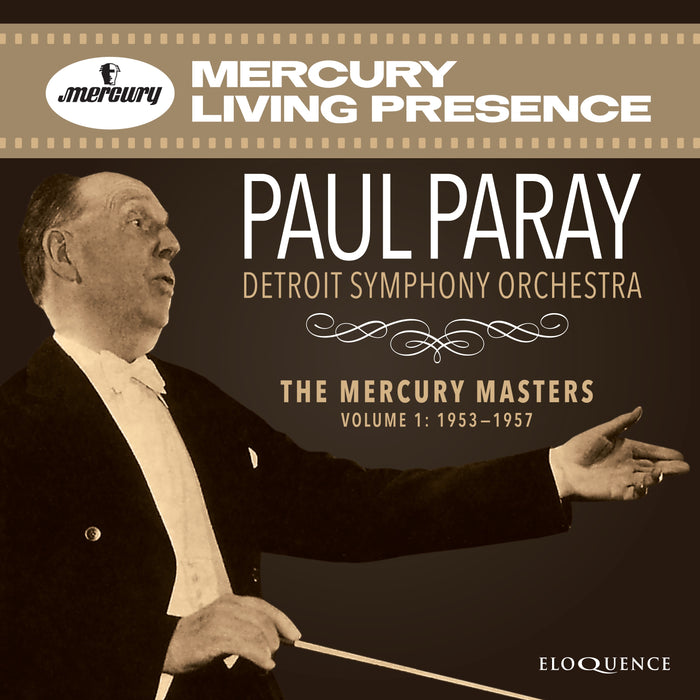Description
Under the leadership of Paul Paray, the Detroit Symphony Orchestra quickly cultivated a brilliance of attack, precision of ensemble and moulded sonority.
Their signature sound was ideally suited to the dynamic profile of Mercury Living Presence recordings, especially in stereo.
This edition of their recordings, remastered from the original sources by Thomas Fine and Wilma Cozart Fine, chronicles the last five years of this partnership (1958–62). This original jackets collection is presented chronologically as when first issued.
For a decade in the 50s and early 60s, the Detroit Symphony Orchestra won acclaim as one of the great orchestras of the world under its music director Paul Paray. Rebuilding the orchestra almost from scratch with the help of Toscanini's former concertmaster Mischa Mischakoff, Paray quickly cultivated a brilliance of attack, a precision of ensemble and moulded sonority in the image of the French orchestras he had led before the Second World War, now boosted by a level of technical finesse which was rivalled only by George Szell in Cleveland and Fritz Reiner in Pittsburgh and Chicago.
The DSO/Paray sound was ideally suited to the dynamic profile of Mercury Living Presence recordings, especially in stereo, and the label captured them in repertoire which initially focused on Paray's strengths in French and German music, with albums of Beethoven, Mendelssohn, Chausson and Ravel which stand the test of time. However, Paray was known as a universalist, at home in any repertoire except modernism. The stereo recordings in this set, made between 1958 and his final season as music director ending in 1962, including thrilling accounts of Dvorak's 'New World' and Sibelius's Second symphonies, as well as an explosive album of Suppé overtures.
Paray had been friends and colleagues with several of the French composers featured here such as Ravel, Florent Schmitt and Jacques Ibert. Their music naturally responds to the lightness of touch, subtly restrained rubato and unsentimental phrasing which Paray brought to everything he conducted. The substantial bonus is a first-ever CD release for 'The Naked Carmen', a rock opera devised and arranged by John Corigliano and David Hess from Bizet's score, as played by the Detroit musicians and Paray with the addition of modern elements such as guitars and a rhythm section. The set concludes with Paray's sole recording for Deutsche Grammophon, a coupling of the Ravel piano concertos made in Paris with Monique Haas.
Recordings in this new set have been remastered from the original sources by Thomas Fine, son of the Mercury producer Wilma Cozart Fine and the label's chief engineer Robert Fine. They are presented in this original jacket collection as they were first issued, and accompanied by a richly illustrated booklet which contains essays on the sessions by Thomas Fine and on the DSO/Paray partnership by Peter Quantrill.
"Brilliantly and opulently set forth by Paray [La tragédie de Salome] … With his affinity for French music of all periods, Paray enhances the Suite No. 1 with an exhilarating reading." High Fidelity, April 1959 (Schmitt/Lalo)
"[Between Paray and Szell] it's a contest of perfection between two great conductors and orchestras, and technically it ends in a draw. But interpretatively, Paray wins hands down … Where Paray really glows is in the Reformation Symphony, of which he gives an unhurried and noble account." High Fidelity, August 1959 (Mendelssohn)
"Paray gives a sensible, fairly straightforward reading, yet one that has plenty of Schumannesque glow." High Fidelity, October 1959 (Schumann, Symphony No 1)
"The performance which gave me outstanding pleasure was that of the Siegfried Idyll, because it is kept moving and never sentimentalised." Gramophone, October 1959 (Wagner)
"may we, Maestro Paray, turn the tables and thank you with all our hearts for an incredible series of performances, life-enhancing to say the least; and thanks to the Mercury team responsible for the original recordings and these superb refurbishments […] sounding as alive now as they did when first released. They're not to be missed an any account. […] Buy both. You won't regret it" – Gramophone
"Just about all of Paul Paray's Detroit Symphony recordings guarantee clear lines, sharp rhythms, impeccable balances, colour and character galore plus typically vivid Mercury Living Presence sound. Newcomers should start with the all-stereo box, but if you can swing both volumes, you'll take in the impressive breadth of this great conductor's repertoire and how he galvanises his musicians." - Gramophone


